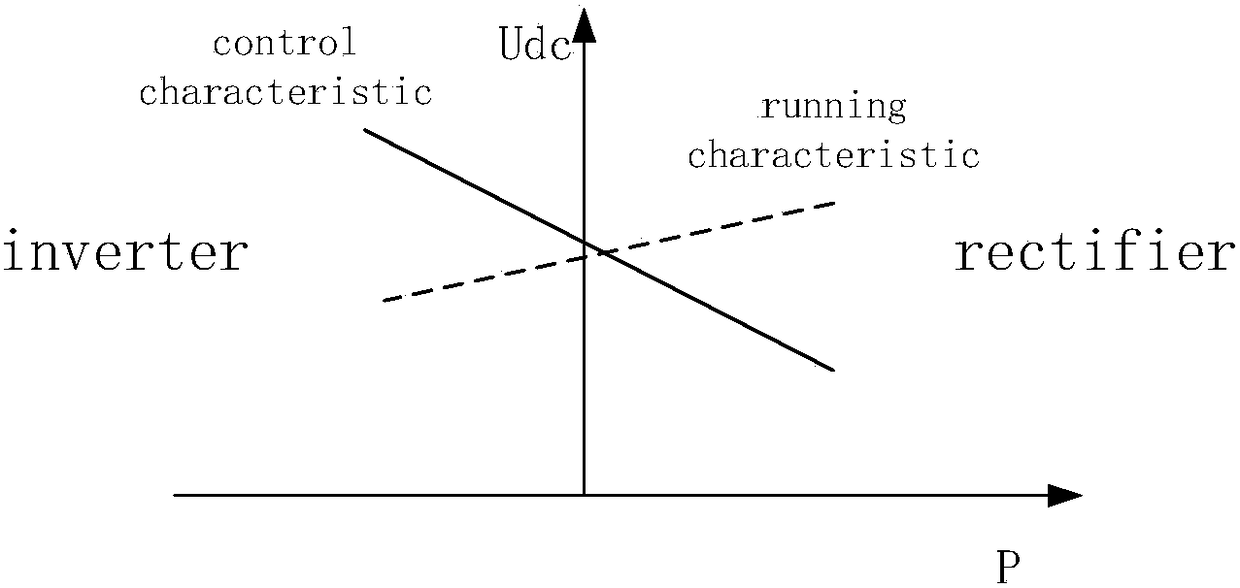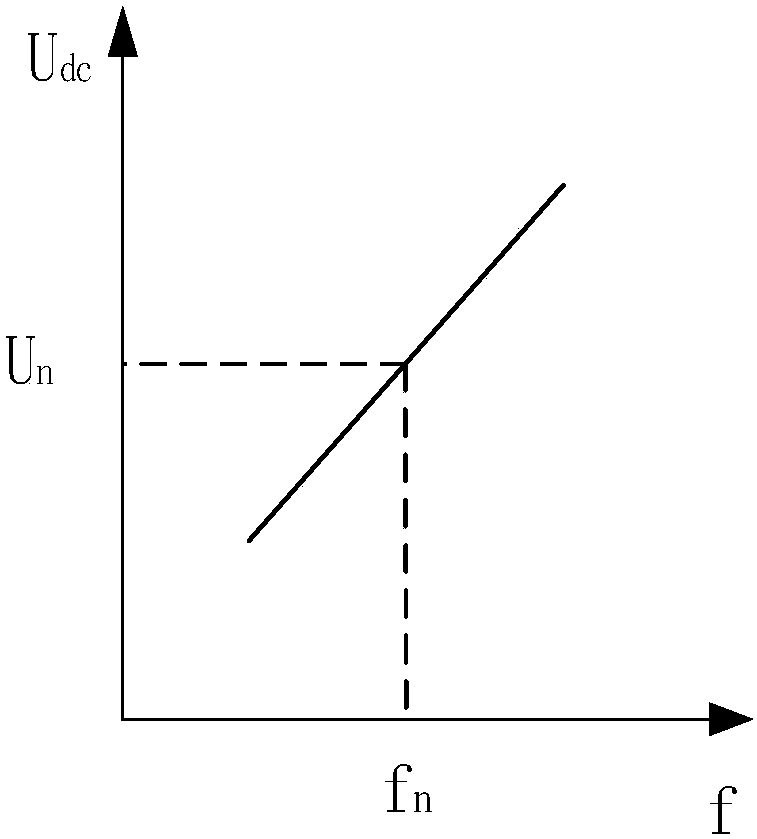A VSC converter station control method based on frequency voltage slope control
A control method and technology of a converter station, which can be applied to a single AC network with different frequencies, electrical components, circuit devices, etc., can solve problems such as weakening the advantages of system interconnection, enhance the ability of real-time mutual support, and improve stability. Effect
- Summary
- Abstract
- Description
- Claims
- Application Information
AI Technical Summary
Problems solved by technology
Method used
Image
Examples
Embodiment
[0036] Figure 4 For the model used in the simulation, A, B, and C are three equivalent converter stations. The AC side of the converter station is connected to three asynchronous AC power grids, and the DC side of the converter station is directly connected to form a node O; Such as Figure 5 As shown, when t=20s, the AC side load of AC1 of the power grid suddenly increases by 90MW, and the power transmitted from station A and station B to station C through the DC grid will increase (station A and station B transmit power to C in a steady state), Figure 6 As can be seen in Figure 7, the increase in AC3 load on the AC side of the C station reduces the frequency of the three converter stations and the DC voltage at the converter station ports. The AC power grids AC1 and AC2 automatically transmit more power to AC3. , In order to maintain the power balance of the entire AC / DC hybrid system. The three-side AC sub-grids jointly bear the increased power of AC3, and the capacity to ...
PUM
 Login to View More
Login to View More Abstract
Description
Claims
Application Information
 Login to View More
Login to View More - R&D
- Intellectual Property
- Life Sciences
- Materials
- Tech Scout
- Unparalleled Data Quality
- Higher Quality Content
- 60% Fewer Hallucinations
Browse by: Latest US Patents, China's latest patents, Technical Efficacy Thesaurus, Application Domain, Technology Topic, Popular Technical Reports.
© 2025 PatSnap. All rights reserved.Legal|Privacy policy|Modern Slavery Act Transparency Statement|Sitemap|About US| Contact US: help@patsnap.com



